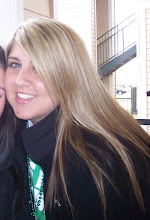
You Gotta BE the Book- Jeffery D Wilhelm
I believe that this is a good introductory text for ENG 4800. Although, I don’t think that it is needed to read every chapter. There are some very helpful parts while others weren’t as important. Some chapters could have been taken out. Some of these include chapter one and two. Each chapter is very long and although some parts of the chapter are much needed, several pages are not needed and boring. There will definitely be parts of the book that I will be able to use when I become a teacher. Most of the parts would be some of the activities mentioned. This book would come second out of three in my opinion.

Critical Encounters in High School English- Arthur N Applebee
This is a good text for ENG 4800. Although I found it impersonal and at times dry, it did have very important examples and themes. Mostly every chapter has its important parts although some of the details are unnecessary. There are some activities that I will be able to use in the classroom. The only real complaint I have is that it can become very dry. I liked when we took some of the activities from the book and did them in class. I would say to do more book-to-classroom activities. Although it isn’t the same exact thing, it gives the students a look into how the activities would play out.
Literature and Lives- Allen Webb

I believe that this is a great text for ENG 4800. I would not change how the text was used in class. I believe that all the chapters were needed. I will DEFINITELY be able to use this book as a resource for my future classroom. This was my favorite book out of three used in class. The stories that were used to open each chapter were very personal and important. The best thing about the book, which I believe are the different texts that he gives at the end of each chapter. I will definitely use this book, over and over I think. Webb made this my favorite book because he was very concise and I felt as if he was directly talking to me. Also, a part of the book that I admire is how there was no part of the book that seemed to be a page filler. Before reading the book, I thought that we were reading it only because of the fact that he was a professor at Western, but I know understand how great and useful of a book it really is.



